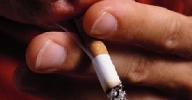|
|
 Acne (1,500) Acne (1,500)
 Addictions (1,500) Addictions (1,500)
 Advice (1,500) Advice (1,500)
 Allergies (1,092) Allergies (1,092)
 Alternative Medicine (1,500) Alternative Medicine (1,500)
 Anti Aging (1,500) Anti Aging (1,500)
 Breakup (1,500) Breakup (1,500)
 Cancer (1,499) Cancer (1,499)
 Dental Care (1,500) Dental Care (1,500)
 Disabilities (1,500) Disabilities (1,500)
 Divorce (1,500) Divorce (1,500)
 Elderly Care (1,498) Elderly Care (1,498)
 Goal Setting (1,500) Goal Setting (1,500)
 Hair Loss (1,500) Hair Loss (1,500)
 Health and Safety (1,497) Health and Safety (1,497)
 Hearing (1,500) Hearing (1,500)
 Law of Attraction (1,499) Law of Attraction (1,499)
 Marriage (1,500) Marriage (1,500)
 Medicine (1,497) Medicine (1,497)
 Meditation (1,499) Meditation (1,499)
 Men's Health (1,500) Men's Health (1,500)
 Mental Health (1,500) Mental Health (1,500)
 Motivational (1,500) Motivational (1,500)
 Nutrition (1,495) Nutrition (1,495)
 Personal Injury (1,499) Personal Injury (1,499)
 Plastic Surgeries (1,500) Plastic Surgeries (1,500)
 Pregnancy (1,496) Pregnancy (1,496)
 Psychology (1,500) Psychology (1,500)
 Public Speaking (1,500) Public Speaking (1,500)
 Quit Smoking (1,500) Quit Smoking (1,500)
 Religion (1,499) Religion (1,499)
 Self Help (1,500) Self Help (1,500)
 Skin Care (1,500) Skin Care (1,500)
 Sleep (1,500) Sleep (1,500)
 Stress Management (1,500) Stress Management (1,500)
 Teenagers (1,492) Teenagers (1,492)
 Time Management (1,500) Time Management (1,500)
 Weddings (1,500) Weddings (1,500)
 Wellness (1,500) Wellness (1,500)
 Women's Health (1,500) Women's Health (1,500)
 Women's Issues (1,500) Women's Issues (1,500)
|
My daughter had a bad habit of pulling her hair. I always used to yell at her for that habit which used to irritate me. I thought it was done on purpose but she used to claim that it just happens. She was inclined to pull her hair when reading or watching TV. It was only when I saw a documentary talking about hair pulling that I realized my daughter had a disorder. That was when I decided to find out what it really is and seek for medical assistance. Hair pulling is termed trichotillomania in medical terms. Although it is not rare, there are not a lot of statistics on it. This is because few people know or understand the disorder. Trichotillomania is an impulse control or compulsive disorder which is thought to be due to chemical imbalances in the brain. It is common in children as young as one year although its inception is normally between nine and thirteen years. Most people grow up with this disorder and usually do not seek treatment. The sufferer feels an urge to start pulling out hair. It can be hair on any part of the body like the face, trunk and genital areas, but is more common on the head. It has not been really pinpointed what triggers the disorder, but stress and depression have been pointed at. Some may not be aware of pulling their hair whilst some use it to relieve their stress. In children, pulling of the hair is often done subconsciously. In adults it may be intentional either for relief or just to feel pain. The result is can be seen by different lengths of hair, uneven hair growth or stubble, and broken hairs, lack of eyebrows, eyelashes, hair in the nose, ears and on the upper lip. The hair on the head becomes unusual and uneven in shape. For fear of being shunned by society, older sufferers are very secretive. They will give all sorts of excuses for the condition of their hair. Most wear hats, caps and wigs to hide away the ugliness of the disorder. Teenagers have been to known to have eccentric hair styles. Eyebrows are drawn using eyebrow pencils and fake eyelashes are worn. Treatment is available. The best treatment one can receive is behavioral therapy. It can be done individually or in groups or with the family. Children under the age of 5 have been known to outgrow the condition and sometimes therapy may not be employed. However, it is important for the family to be aware of the disorder and how they can help their children out of it. Patients are made to realize their behavior and are taught how to handle the impulse. Psychiatric treatment is the best if the condition persists or begins when one is an adult. Hair pulling is more prevalent in females than males. For every 4 patients, 3 of them are female. I am happy that I was brought to light of my daughter's disorder. She underwent behavioral therapy and has now stopped pulling her hair.
|
|
|



